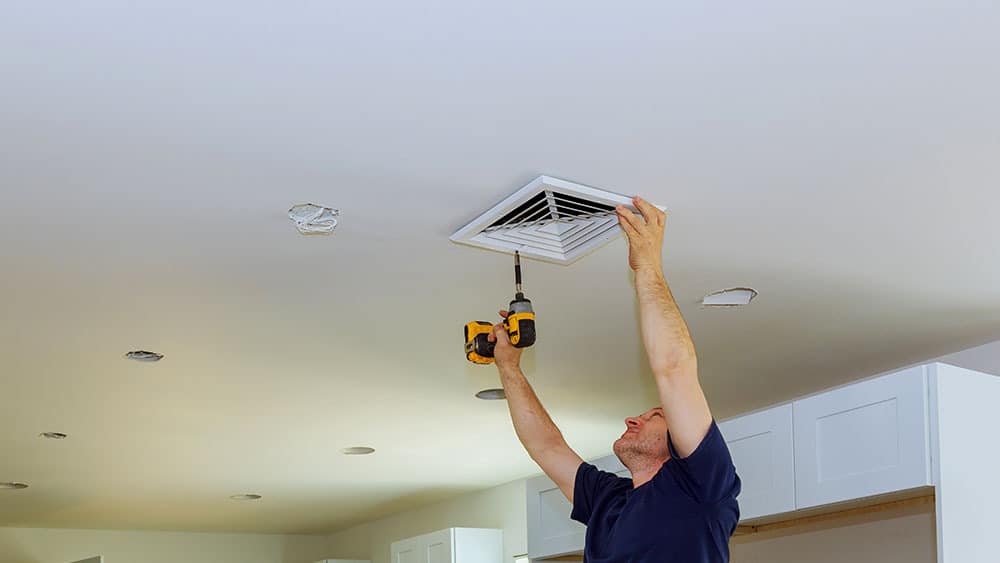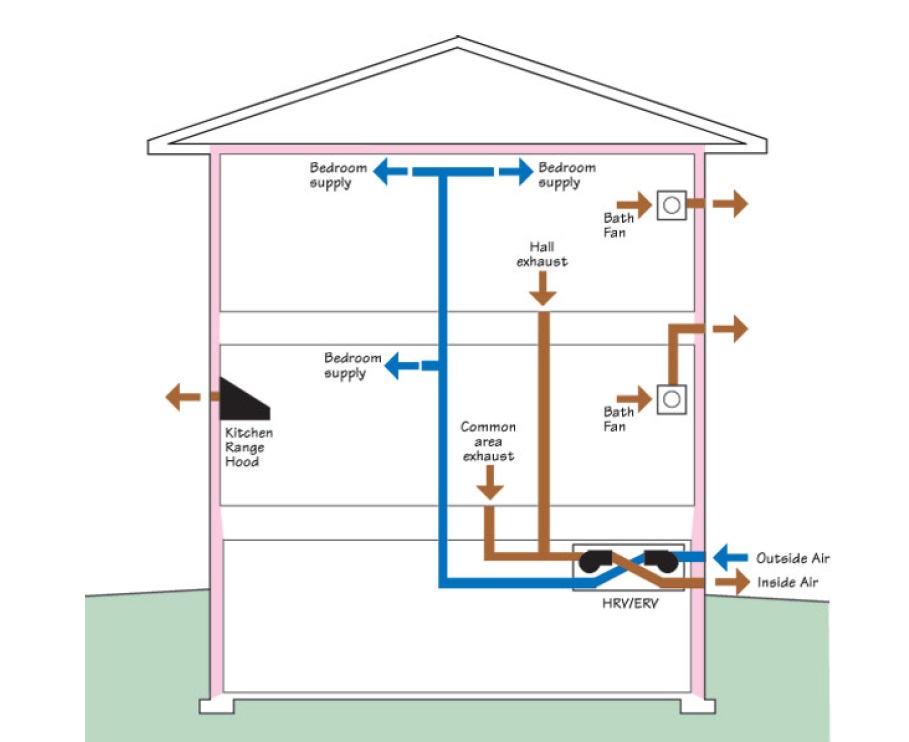The Duty of Home Ventilation in Preventing Mold And Mildew and Indoor Allergens
Home ventilation is a vital component in preserving a healthy and balanced indoor setting. It controls humidity degrees, which can stop the development of mold and the buildup of allergens. Lots of homeowners ignore the importance of appropriate air flow, frequently bring about unseen problems. Recognizing how air flow systems feature and their influence on air top quality could be the secret to a much healthier living space. What steps can be required to improve these systems properly?
Understanding Home Ventilation Equipments
While several homeowners may forget the importance of ventilation, comprehending home ventilation systems is necessary for maintaining indoor air quality and avoiding mold growth - Home Ventilation Melbourne. These systems promote the exchange of stagnant indoor air with fresh outdoor air, efficiently minimizing contaminants and dampness degrees. Common types include natural ventilation, which depends on wind and temperature differences, and mechanical ventilation, which uses ducts and fans to control airflow. Additionally, balanced ventilation systems combine both methods to optimize air quality. Properly designed and maintained ventilation systems can help regulate temperature level and moisture, making certain a comfortable living setting. Homeowners need to take into consideration variables like home climate, tenancy, and design when choosing a ventilation system to best match their requirements and improve overall air top quality
The Influence of Humidity on Mold And Mildew Growth
Moisture plays a crucial function in mold development, making it a vital factor for house owners to keep track of. Mold and mildew prospers in environments where humidity degrees exceed 60%, as these problems provide the wetness required for spores to sprout and multiply. High humidity can result from numerous sources, consisting of poor ventilation, water leakages, and cooking or bathing activities. When moisture levels stay raised, mold can create rapidly on organic products such as drywall, fabric, and timber. Home owners ought to utilize dehumidifiers and assure correct ventilation in locations prone to moisture, such as cellars and bathrooms. Keeping indoor moisture in between 30% and 50% can greatly decrease the risk of mold growth, adding to a healthier living atmosphere.
Recognizing Typical Indoor Allergens
Indoor environments can nurture a range of irritants that influence health and convenience. Typical interior allergens include allergen, family pet dander, mold spores, and plant pollen. Dirt mites grow in bed linen, rugs, and furniture, eating organic material and contributing to respiratory issues. Pet dog dander, made up of tiny flakes from skin and hair, can trigger allergies in delicate individuals. Mold and mildew spores, frequently existing in moist locations, can proliferate and affect air high quality. In addition, pollen can infiltrate homes with open windows or on apparel. Recognizing these irritants is crucial for maintaining a healthy and balanced indoor setting. Understanding of their visibility permits property owners to take positive actions to decrease direct exposure and enhance overall interior air quality.
Advantages of Proper Air Flow
Appropriate air flow is vital for preserving a healthy and balanced interior environment, as it assists to regulate air quality and decrease the build-up of contaminants. Ample air movement assists in the exchange of outdoor and indoor air, thereby diluting damaging substances such as volatile natural compounds, allergens, and dirt. This procedure not just enhances convenience but likewise contributes to the overall well-being of occupants by reducing respiratory system problems (Home Ventilation Melbourne). Additionally, correct ventilation effectively controls moisture levels, decreasing the possibility of mold growth and fostering a drier environment for health and wellness. Furthermore, it can improve power effectiveness by making sure that heating & cooling systems run better, resulting in reduced energy expenses. Overall, appropriate ventilation is an important component in advertising company website a healthy and secure home

Tips for Improving Home Ventilation
Although lots of homeowners may ignore it, boosting home air flow is vital for enhancing air high quality and protecting against mold growth. One effective strategy is to consistently open home windows to promote cross-ventilation, enabling fresh air to flow. Installing exhaust followers in bathrooms and kitchen areas can efficiently get rid of moisture-laden air, decreasing moisture levels. Homeowners must also think about utilizing air purifiers with HEPA filters to catch allergens and pollutants. Regularly preserving HVAC systems, consisting of changing filters, warranties come to a head airflow and efficiency. Sealing leaks around home windows and doors can stop outdoors air from entering, which assists keep a constant indoor atmosphere. Integrating houseplants can naturally enhance air high quality while adding aesthetic value to the home.
Frequently Asked Questions
How Typically Should I Tidy My Home Ventilation System?
Figuring out exactly how typically to cleanse a home ventilation system depends upon numerous factors, including use and environmental problems. Home Ventilation Melbourne. Normally, experts recommend a complete cleaning every three to 5 years to preserve perfect airflow and effectiveness
Can Plant Kingdom Help Minimize Indoor Allergens?
Study shows that certain interior plants might aid lower allergens by enhancing air top quality and increasing moisture. Their effectiveness varies, and keeping a tidy atmosphere remains vital for taking care of indoor allergens effectively.
What Types of Air Filters Are Ideal for Mold And Mildew Prevention?

Are There Specific Air Flow Demands for Cellars?

Just how Do I Know if My Ventilation Is Working Effectively?
To figure out effective air pop over to these guys flow, one ought to keep an eye on humidity degrees, inspect air flow with vents, and observe indicators of condensation or stationary air. Normal assessments can show whether the system properly flows and exchanges interior air.
Comprehending just how air flow systems feature and their impact on air high quality can be the secret to a much healthier living area. While lots of homeowners may neglect the importance of ventilation, understanding home ventilation systems is important for preserving indoor air top quality and protecting against mold growth. Usual types include natural ventilation, which counts on wind and temperature level distinctions, and mechanical air flow, which uses followers and ducts to regulate airflow. Proper ventilation is important for maintaining a healthy indoor setting, as it aids to see here control air quality and lower the buildup of toxins. Numerous home owners may forget it, boosting home air flow is necessary for enhancing air quality and protecting against mold and mildew development.